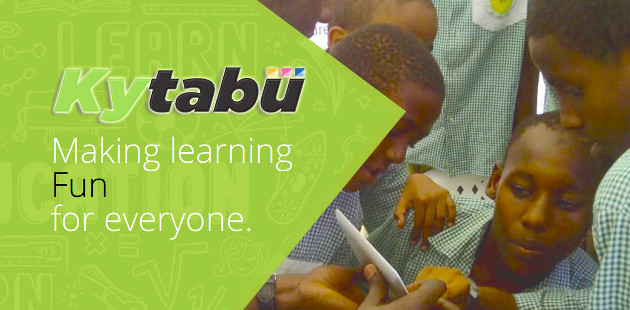The impact of education is lessened by more than half for children that cannot afford textbooks. About 74% of students in the Kenyan educational system are unable to buy the mandatory learning material. The 2012 Kenyan social startup Kytabu, Swahili for “book,” uses modern technology to help children in the developing world access textbooks. The startup’s application provides affordable, relevant, and engaging learning content.
Digitize and Pre-Install Content
First, Kytabu digitizes textbooks that Kenya and East African countries use in primary and secondary schools. As broadband can be costly, the content comes pre-installed on a tablet, a modem to be plugged into a computer, a webbox that is a keypad connected to a television set or a SIM-Set which is a SIM card and MicroSD that can be put into any of the devices mentioned. The SIM card allows cellular data connectivity and thus updates in learning material. Kytabu’s long term goal is to provide improved content at no cost to the end user on the data connection. In addition, Kytabu has its own app store featuring audio books, learning games, virtual classrooms, and past tests.
Kytabu App [Infomercial Animation] from Kevin Karanja on Vimeo.
Pay as You Go
To guarantee convenience and ease of purchase, the social startup relies on pay as you go model. Kytabu uses mobile money transactions built into the application. Students can access a page, a chapter or a book for various time periods (an hour, day, week, month or school term). According to US Secretary of State John Kerry, “The Genius in the application is the ability to micro-pay for byte-sized content only when it is needed.” Users pay 72% lower cost and enjoy interactive learning when they need it.
Creating a Working Environment
Kytabu also monitors data mining, and tracks learning patterns, content experiences, user progress and general learning trends. Thus, Kytabu establishes a working environment for publishers, content developers mobile service providers and hardware manufactures with the goal of improving education.
____________________
About the author
 Radostina Ivanova is a passionate human rights advocate who just moved to Berlin to gain practical experience while applying to master’s degree programs in international public policy. In 2014, Radostina graduated from Trinity University in Texas, USA with International Relations and Communication. She spent the past year working as an Executive Assistant to former US Ambassador to the United Nations Sichan Siv. Radostina also has extensive experience volunteering and interning with nonprofits. She is eager to learn about business tools for accomplishing social improvements.
Radostina Ivanova is a passionate human rights advocate who just moved to Berlin to gain practical experience while applying to master’s degree programs in international public policy. In 2014, Radostina graduated from Trinity University in Texas, USA with International Relations and Communication. She spent the past year working as an Executive Assistant to former US Ambassador to the United Nations Sichan Siv. Radostina also has extensive experience volunteering and interning with nonprofits. She is eager to learn about business tools for accomplishing social improvements.


